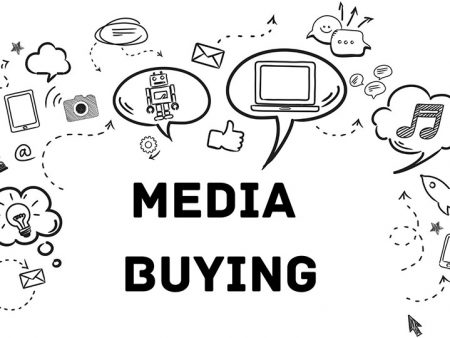In the ever-evolving world of iGaming, where competition is fierce and user acquisition costs are high, Pay-Per-Click (PPC) advertising has emerged as a powerful tool for driving traffic and increasing revenue. For iGaming businesses, the key to success lies in not just running PPC campaigns but optimizing them to maximize Return on Investment (ROI). This comprehensive guide will delve into the strategies and best practices that can help iGaming companies enhance their PPC campaigns, optimize ad spend, and accurately measure ROI in 2024.
Understanding the iGaming PPC Landscape
Overview of the Current iGaming Market
The iGaming industry is experiencing unprecedented growth, with global revenues expected to surpass $100 billion by 2024. This expansion is fueled by several key factors:
- Increased Internet Penetration: As more people around the world gain access to reliable internet connections, the potential audience for iGaming platforms expands.
- Smartphone Usage: The widespread adoption of smartphones has made it easier for users to access online gambling services on the go, contributing significantly to market growth.
- Legalization of Online Gambling: Various regions are relaxing their regulations around online gambling, opening up new markets and creating opportunities for both new and established iGaming companies.
This booming market, however, is also characterized by intense competition. To succeed, iGaming businesses must differentiate themselves through innovative offerings, exceptional user experiences, and effective marketing strategies.
Importance of PPC in Driving Traffic and Conversions
Pay-Per-Click (PPC) advertising has emerged as one of the most effective methods for attracting potential players to iGaming platforms. The advantages of PPC advertising include:
- Precise Targeting: PPC allows for highly specific audience targeting based on demographics, interests, and online behavior. This ensures that ads are shown to users who are most likely to be interested in iGaming services.
- Real-Time Adjustments: Campaigns can be monitored and adjusted in real time, allowing marketers to optimize their strategies for better performance continually.
- Measurable Results: PPC provides detailed analytics, enabling businesses to measure the effectiveness of their campaigns and calculate ROI with precision.
- Higher Conversion Rates: By reaching the right audience at the right time with tailored messages, PPC ads are more likely to convert viewers into paying customers, boosting overall revenue.
Given these benefits, PPC is a critical component of any comprehensive digital marketing strategy for iGaming businesses.
Challenges Specific to iGaming PPC Campaigns
While PPC advertising offers significant advantages, iGaming businesses face unique challenges when implementing these campaigns:
- Regulatory Restrictions: Many countries have stringent regulations governing online gambling advertisements. These can include outright bans, restrictions on certain types of content, and mandatory disclaimers. Navigating these regulations requires careful planning and compliance expertise.
- High Cost-Per-Click (CPC): Keywords related to iGaming are highly competitive, driving up the cost per click. This means that businesses must carefully manage their budgets and focus on high-performing keywords to ensure a positive return on investment.
- Ad Fatigue: Repeated exposure to the same advertisements can lead to ad fatigue, where users become desensitized to the messages. This decreases the effectiveness of PPC campaigns over time. To combat this, businesses need to regularly refresh their creative assets and employ strategies like A/B testing to maintain user engagement.
Understanding these challenges is crucial for crafting a successful PPC strategy. iGaming businesses must be agile and innovative, continuously optimizing their campaigns to stay ahead in a competitive market. By addressing regulatory issues, managing costs effectively, and keeping their advertising fresh, they can leverage PPC to drive significant traffic and conversions.
Creating Effective PPC Campaigns
Keyword Research and Selection
Effective keyword research is the cornerstone of a successful PPC campaign in the iGaming industry. Here’s how to get it right:
- Use Tools: Leverage advanced keyword research tools to identify high-traffic, low-competition keywords.
- Google Keyword Planner: Offers insights into search volume and trends, helping you find relevant keywords.
- SEMrush: Provides comprehensive data on keyword difficulty, search volume, and competitive analysis.
- Ahrefs: Useful for uncovering keyword opportunities and analyzing competitors’ keyword strategies.
- High-Intent Keywords: Focus on keywords that demonstrate clear user intent, indicating that the searcher is ready to engage with iGaming content.
- Examples: “play online casino,” “best poker sites,” “real money slots.”
- Long-Tail Keywords: Target long-tail keywords to capture niche audiences and drive more specific traffic.
- Examples: “how to win at online blackjack,” “top mobile casino games 2024,” “best live dealer casinos.”
Ad Copywriting Tips
Your ad copy is the first impression potential players will have of your iGaming platform. Crafting compelling ad copy is crucial for attracting clicks and driving conversions:
- Headlines: Use attention-grabbing headlines that highlight your unique selling points.
- Examples: “Get 100 Free Spins Today!” “Join the Best Online Casino Now!”
- Action-Oriented Language: Encourage immediate action with strong, action-oriented phrases.
- Examples: “Sign Up Now,” “Play Today,” “Join and Win Big!”
- Incorporate Promotions: Highlight bonuses, promotions, and exclusive offers to entice clicks.
- Examples: “Exclusive $500 Bonus for New Players,” “Double Your First Deposit!”
Landing Page Optimization
Once a user clicks on your ad, they should be directed to a landing page that is relevant and optimized for conversions:
- Relevancy: Ensure that the landing page content matches the ad copy to avoid confusion and increase trust. Consistency between the ad and landing page helps maintain user interest and reduces bounce rates.
- Example: If the ad promises “100 Free Spins,” the landing page should prominently feature this offer.
- Design: Use a clean, intuitive design with clear navigation. A well-designed landing page enhances user experience and guides them towards conversion.
- Features: Fast loading times, mobile optimization, attractive visuals, and user-friendly layout.
- Calls-to-Action (CTAs): Place prominent and compelling CTAs to guide users towards the desired action, whether it’s signing up or making a deposit.
- Examples: “Register Now and Get Your Bonus,” “Deposit Today and Start Playing,” “Claim Your Free Spins.”
Additional Tips for Success
- A/B Testing: Regularly test different ad copies, headlines, and CTAs to determine which combinations yield the best results.
- Remarketing: Implement remarketing strategies to target users who have previously visited your site but did not convert.
- Analytics: Continuously monitor campaign performance through analytics tools to make data-driven adjustments and improvements.
By focusing on effective keyword research, compelling ad copy, and optimized landing pages, your PPC campaigns in the iGaming industry can achieve higher traffic, better engagement, and increased conversions.
Optimizing Ad Spend
Bid Management Strategies
Effective bid management can significantly impact your ad spend and ROI:
- Manual vs. Automated Bidding: While manual bidding allows for greater control, automated bidding can optimize bids in real-time based on performance.
- Budget Caps: Set daily and monthly budget caps to control your spending and avoid overspending.
Geo-Targeting and Demographics
Targeting the right audience is key to maximizing ROI:
- Focus on High-Interest Regions: Use geo-targeting to concentrate your ads on regions with a high interest in iGaming.
- Adjust Bids Based on Demographics: Tailor your bids according to demographic data such as age, gender, and interests to improve targeting efficiency.
Ad Scheduling
Running your ads at the right times can lead to better performance:
- Peak Times: Identify the peak times when your target audience is most active and schedule your ads accordingly.
- High-Conversion Periods: Analyze your data to find the times when conversions are highest and prioritize these periods for your ads.
A/B Testing
Continuous testing is crucial for optimization:
- Test Different Ad Elements: Conduct A/B tests on various elements like headlines, CTAs, images, and ad formats.
- Analyze Results: Use the data from A/B tests to make informed adjustments and improve campaign performance.
Measuring and Analyzing ROI
Setting Clear Goals and KPIs
Before launching your PPC campaign, it’s essential to define clear goals and key performance indicators (KPIs):
- Conversion Goals: Establish what constitutes a conversion for your campaign, such as user sign-ups, deposits, or game plays.
- KPIs: Track metrics like click-through rate (CTR), cost-per-click (CPC), cost-per-acquisition (CPA), and conversion rate.
Using Analytics Tools
Utilize advanced analytics tools to track and measure your campaign performance:
- Google Analytics: Set up conversion tracking to monitor how users interact with your site after clicking on an ad.
- Custom Dashboards: Create custom dashboards to consolidate and analyze PPC metrics in one place.
Attribution Models
Choosing the right attribution model is crucial for understanding the impact of your PPC campaigns:
- First-Click Attribution: Gives credit to the first ad clicked by the user.
- Last-Click Attribution: Attributes the conversion to the last ad clicked.
- Multi-Touch Attribution: Distributes credit across multiple touchpoints in the user journey.
Calculating ROI
To measure the effectiveness of your PPC campaigns, calculate the ROI using the formula:
- ROI Formula: (Revenue – Cost) / Cost.
- Example Calculation: If your campaign generated $10,000 in revenue and cost $4,000, your ROI would be (10,000 – 4,000) / 4,000 = 1.5 or 150%.
Advanced Tips for Maximizing ROI
Leveraging Retargeting Campaigns
Retargeting can significantly boost your ROI by bringing back users who have previously shown interest:
- Target Previous Visitors: Use retargeting ads to reach users who have visited your site but didn’t convert.
- Personalized Ad Experiences: Create personalized ads based on the user’s past interactions with your site.
Utilizing Video Ads
Video ads can be more engaging and effective than traditional text ads:
- Dynamic Content: Use video ads to showcase your platform, highlight promotions, and engage potential players.
- Platforms: Consider advertising on platforms like YouTube and Twitch where many iGaming enthusiasts spend their time.
Ad Extensions and Formats
Enhance your PPC ads with extensions and choose the right formats:
- Ad Extensions: Use sitelink, callout, and structured snippet extensions to provide additional information and increase ad visibility.
- Ad Formats: Experiment with different ad formats such as display ads, search ads, and native ads to find what works best for your audience.
Conclusion
Maximizing ROI from PPC campaigns in the iGaming industry requires a combination of strategic planning, continuous optimization, and thorough analysis. By implementing the tips and strategies outlined in this guide, iGaming businesses can enhance their PPC efforts, attract more players, and ultimately achieve higher returns on their marketing investments. As the PPC landscape continues to evolve, staying informed and adaptable will be key to maintaining a competitive edge.












